The international community believes Australia is taking a “backwards step” by scrapping carbon pricing, which is seen as a key tool in cutting emissions, according to an Intergovernmental Panel on Climate Change lead author.
Prof David Stern, a lead author of the UN report which was released on Sunday, said although the IPCC was policy-neutral, the report makes clear the benefits of carbon pricing.
“It’s a cost-effective incentive for everyone to look for their best option to lower emissions,” Stern told Guardian Australia. “Most of the mentions of Australia in the IPCC report are around its emissions trading scheme. The report makes clear that carbon pricing is a cost-effective model, if done correctly.
“Carbon pricing was a positive step in the right direction and if Australia did link it to the European scheme, the price wouldn’t be high. Scrapping it is seen as a backwards step. I think it’s viewed as a bad move by other countries.”
Stern, an Australian National University academic, said the Coalition’s alternative to carbon pricing, a “direct action” policy of tree planting and cash handouts to businesses to lower emissions, was problematic.
“Direct action costs government money. Instead of raising revenue and cutting taxes elsewhere, it means higher taxes in the long term to pay for the scheme,” he said. “It also makes it hard for bureaucrats to decide if companies would’ve cut emissions anyway, if it were not for the scheme. It will take a lot of investigating and monitoring.”
The latest IPCC report, unveiled in Berlin, focuses on how countries can mitigate the impact of climate change. The report, prepared by more than 1,250 experts from around the world, found that limiting the global temperature increase to 2C above pre-industrial levels will require a tripling or quadrupling of low-carbon energy by 2050.
Delaying major mitigation of climate change over the next decade will “substantially increase the difficulty of the transition to low longer-term emissions levels”, the report states.
Investment to shift away from carbon-intensive fuels such as coal towards energy powered by the wind and sun would shave just 0.06% off expected annual economic growth rates of 1.3%-3%, the IPCC report concluded.
Environmental and climate groups have seized on the report to urge the government to do more to abandon fossil fuels.
Meanwhile, the Minerals Council of Australia has launched a website, called Australians for Coal, which extols the financial benefits brought by coal, which it calls “indispensible to modern life”.
The Coalition has a target of a 5% reduction in emissions by 2020, based on 2000 levels. This target could increase based on the activity of other nations. The independent Climate Change Authority, which the government wants to abolish, has recommended the target should be escalated to at least 15%.
“A credible carbon pollution reduction task is not one of falling across the line of 5% reductions below 2000 levels by 2020,” said John Connor, chief executive of the Climate Institute. “If other countries did similar, this is consistent with around 4C global warming. A plan that ends in 2020, ends at the beginning. Credible Australian goals need to more than halve carbon pollution by 2030.
“This report from the world’s top climate change economists, and signed off by governments including Australia, is crystal clear: effective, sustained and ambitious policies are needed to boost renewable energy, energy efficiency and technologies that remove carbon pollution from the atmosphere.”
Owen Pascoe, climate spokesman at WWF, said: “The IPCC has made it clear what the world needs to do – the question for Australia is now what sort of country are we going to be?
“Are we going to sit back and hope the United States, Europe and China will do the work to save our Great Barrier Reef and protect our country – or are we going to pitch in and do our fair share?”
The office of Greg Hunt, the environment minister, was contacted for comment on the IPCC report.
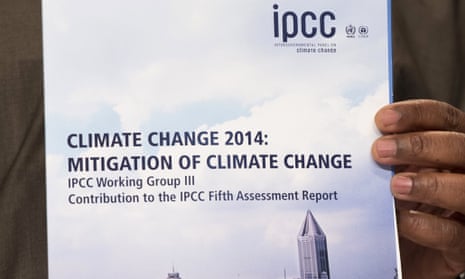

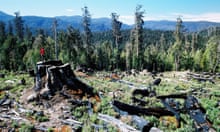

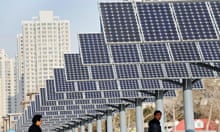
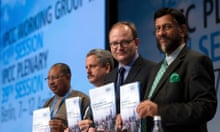
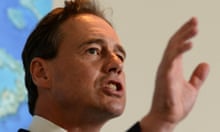


Comments (…)
Sign in or create your Guardian account to join the discussion